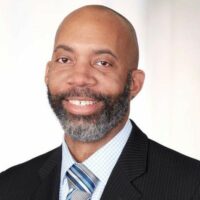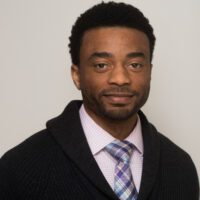
Accenture Federal Services, in collaboration with the Partnership for Public Service, has launched a program aimed at empowering chief diversity officers in the federal sector.
The Chief Diversity Officer Bootcamp is an 8-week program that wrapped up this spring. It is the first of its kind training in the federal contracting sector, aiming to equip federal workers with the skills and qualifications to excel as agency chief diversity officers, according to a statement from Accenture Federal Services.
The program comes on the heels of a rush of federal agencies to establish diversity, equity, inclusion and accessibility programs following the 2020 murder of George Floyd.
However, many chief diversity officers were chosen because of their lived experiences rather than their expertise in DEIA or their business acumen, according to Adam Jones, Accenture Federal Services human capital and DEIA offerings lead. Jones said he discovered there was simply not an adequate pipeline of candidates for these critical roles within federal agencies.
So, he and Kevin Johnson, who leads the PPS’ external DEIA efforts, decided to build their own. What developed was an 8-week program offered both in person and virtually. The inaugural session saw 18 participants, and well over half were federal employees.
“The course not only covered executive core qualifications but really delved into what you need to know to be successful,” Jones said.
Building the Bootcamp Curriculum

The five core areas the course covers are: leading change, leading people, being results driven, business acumen and building coalitions. Participants in the program learn about the history of DEIA and the roles of practitioners and operators in the field.
Jones said practitioners usually have formal training or education around some area of DEIA and are well read and up to date on industry trends.
“It’s more than just having lived experience, a perspective, or a passion for the work,” he said. “They spend time continuing to learn and grow to be a resource for others.”
Operators, by contrast, don’t necessarily have the practitioner’s experience and educational background but do have general business operations skills with strengths in areas like project management, communications, learning and development, human resources and more.
The bootcamp also explored culture change, diversity storytelling, how to manage conflict, implicit and unconscious bias, privilege, psychological safety, coalition building and cultivating a sense of belonging. It examined practices around strategic planning, the employee lifecycle, and storytelling with data and workforce analytics. Lastly, it covered DEIA groups like advisory committees and discussed the future of DEIA.
Johnson said organizers reviewed the executive core qualifications of the federal government, which are necessary to move into Senior Executive Service roles. The bootcamp also looked at work done by Cornell University, George Mason University, the University of South Florida and Northwestern University, which all offer programs or certifications around diversity leadership.
“We wanted to make sure that our work covered all of the major components that are related to what we consider to be the important parts of being both a practitioner and an operator in the space of chief diversity officer,” Johnson said. “We then compressed it into eight weeks and made it relate to the position in the federal space.”
Planning the Next Steps
The bootcamp was initially designed for aspiring chief diversity officers at the GS-14/15 level or above, and those in the role for less than three years. However, those parameters are evolving.
From the first 8-week session, organizers learned chief diversity officers and other senior-level DEIA practitioners aren’t the only ones in need of this type of training.
“The bootcamp was a good fit for anyone who wants to find themselves as a practitioner at any career level and wants to understand foundationally what it means to be in the DEIA space,” Johnson said. “Any senior executive could take this class, anybody who’s responsible for creating an environment of inclusion and belonging, anyone who wants to create the future of work.”
The bootcamp covered foundational acts, such as the Civil Rights Act of 1964, but also updated participants on the latest guidelines and executive orders and how they apply to their agencies. Plus, they were willing to share best practices with one another.
“This cohort of individuals was passionate about changing the way that the world should work, passionate about changing the way the government should work, passionate about how we should address not just the employees of federal agencies but also about the people they serve,” Johnson said.
Understanding the DEIA Space
Effective DEIA leaders have several qualities in common, Jones said. Those include lived experiences that help shape their perspective of the world, learned experiences gained through formal education or through work, and “operator experiences” based on leading change.
All leaders should have traits like empathy and emotional intelligence, Jones said, but DEIA leaders typically possess those skills at higher levels. They should also understand conflict management and resolution.
“Being able to influence without authority is important because a lot of times the role of a chief diversity officer means you may not have a sufficient budget to achieve every desired outcome nor formal power to force changes,” he said. “But what you should have is the power to get people to believe in you and get people to follow you.”

